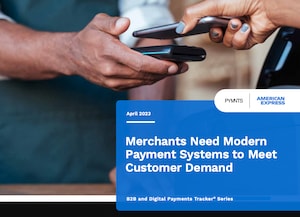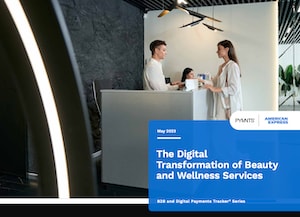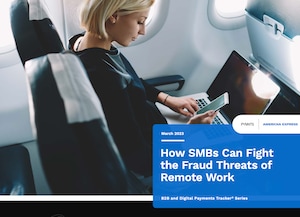June 26, 2020
How Minority-Owned Businesses Can Grow Through Supplier Diversity Programs

Access to the market is one of the top challenges for minority-owned businesses, but supplier diversity programs can help combat economic inequality by promoting businesses owned by people of color. Similar to government agencies’ diversity programs, many companies have their own programs designed to make their supply chain more inclusive and diverse, which can help level the playing field for minority-owned businesses.
“Supplier diversity programs are tools to get you exposure and access to audiences you might not be able to reach otherwise,” says Sydni Craig-Hart, a fourth-generation entrepreneur and multi-award-winning small-business marketing consultant.
Craig-Hart speaks from experience. Her California-based company, Smart Simple Marketing, has been working with enterprise corporations since 2013 and has been certified as a minority-owned business (MBE) and woman-owned business (WBE) since 2015. The company had doubled its revenues for two consecutive years — and Craig-Hart attributes much of that success to selling to large companies who she’s connected with through diversity programs.
“Becoming a supplier to a large organization is a great revenue opportunity for small businesses,” she says. (According to PRGX, companies on the Forbes 2000 list spend $16.6 trillion annually on vendor relationships.) “If you’re willing to put in the work and build relationships, and really involve yourself in the community, this could be a game-changer for your business.”
How Supplier Diversity Programs Work
The supplier diversity programs differ for each corporation or government agency, but have one thing in common: making their supply chain more inclusive and diverse by encouraging the use of vendors that are historically overlooked, such as businesses owned by minorities, women, the LGBTQIA+ community and veterans.
The companies that offer these programs “have made a commitment to ensure that their supply chain reflects their community, customer base and employee base,” says Michelle Sourie Robinson, president and CEO of the Michigan Minority Supplier Development Council, one of 23 affiliates of the National Minority Supplier Development Council.
Many — but not all — of the privately-owned companies that have supplier diversity programs require vendors to be certified as a diverse firm, typically by a third-party organization such as the National Minority Supplier Development Council. Government agencies often have their own certification processes for diversity programs.
Some of these programs also offer matchmaking, business development, training and coaching to promote economic impact to the local communities. The program administrators don’t typically do the procurement — rather, their role is to be a resource. Additionally, many large corporations have a dedicated resource, such as a small business liaison officer (SBLO) or diversity liaison officer on staff to execute on supplier diversity.
“These programs help open doors for you to participate in projects that you may not otherwise have the chance to,” says Yvonne Garth, president and CEO of Florida-based Garth Solutions, Inc., a project management and consulting company that specializes in large construction and capital improvement projects.
Added Advantage as a Subcontractor
Garth Solutions has multiple MBE and WBE certifications, both through the Florida State Minority Supplier Development Council and several government agencies, such as the Florida Department of Transportation and Broward County, Florida. Garth says supplier diversity has helped her company grow from a one-person business to employing 35 people and billing $3.5 million in annual revenues.
One way Garth Solutions works on government projects is by becoming a subcontractor to larger firms that bid on contracts. Garth says that her company’s MBE certification often creates a differentiator and sometimes even becomes the tiebreaker for the winning bid.
“These programs incentivize large companies to carve out a portion of the work that they would normally perform in-house,” she says.
Getting Certified
As an affiliate of the National Minority Supplier Development Council (NMSDC), the Michigan Minority Supplier Development Council certifies, develops, connects and advocates for minority business enterprises ranging from startups to multibillion-dollar companies.
“Certification not only confirms to potential buyers that you have been vetted in terms of ensuring you’re legitimately owned, managed and controlled by a minority group, but also gives you access to training and development resources that are otherwise more difficult to receive,” Robinson says.
Supplier diversity opens doors and attempts to level the playing field so you can compete with everyone else. […] The stronger you are walking through the door, the more likely it is that you’ll achieve success.
- Michelle Sourie Robinson, president and CEO, Michigan Minority Supplier
Development Council
The certification process is rigorous — expect to provide documents ranging from birth certificates to tax returns. Robinson says the Michigan council takes an average of 25 days to certify, while some affiliates may take as long as 90 days. She recommends attending a certification briefing, which outlines the steps in detail and provides a checklist of necessary paperwork.
“The briefing is a wonderful service to reduce the cycle time of processing your application,” she says.
Craig-Hart suggests using a consultant to help navigate the certification process. She says it only cost her a few hundred dollars but saved a lot of time trying to do it herself.
“Hiring the consultant was well worth the investment,” she says.
How to Leverage Your Certification
Craig-Hart, Garth and Robinson all emphasize that the certification itself will not land you projects—it’s only a tool that opens doors and helps build relationships.
“You have to do your homework and understand how the companies work, what services they buy and how they buy them,” Garth says. “And you still have to market yourself.”
Craig-Hart starts by identifying which companies buy the type of services that Smart Simple Marketing provides, then asks herself, “Is that a company I want to do business with?”
“Then, we start trying to figure out how their teams are structured, because every company is organized differently,” she says.
The next step is to connect with individuals in the supplier diversity program, as well as reach out to the buyers, either directly or through introductions.
“After that, it’s about getting to know them and building the relationship and highlighting how we can solve nagging problems,” she says.
The supplier diversity team can serve as an advocate and a conduit to connect you with others as well as help you understand the company’s infrastructure, culture and buying cycles, she adds.
“We proactively stay in touch with them and keep them abreast of our capabilities,” Craig-Hart says.
Garth builds relationships and networks both with the supplier diversity program administrators and the companies that she may want to team up with.
“Networking is what’s helped me be successful,” she says. “I try to figure out where prospects hang out so I can get to know them and start interacting on their terms.”
She recommends starting with a strategy and being prepared to invest in a long-term process.
“It can really help your business but you have to leverage the programs the right way,” she says. “Don’t be everything to everybody—take whatever you do really well and stick with it, figure out what makes you different and then figure out who buys those services.”
In addition to evaluating your own business, Robinson recommends looking at the competition. She says that building strategic alliances with like-minded businesses is a good strategy because you can pursue greater opportunities.
“Supplier diversity opens doors and attempts to level the playing field so you can compete with everyone else,” she says. “The stronger you are walking through the door, the more likely it is that you’ll achieve success.”
Photo: Getty Images








